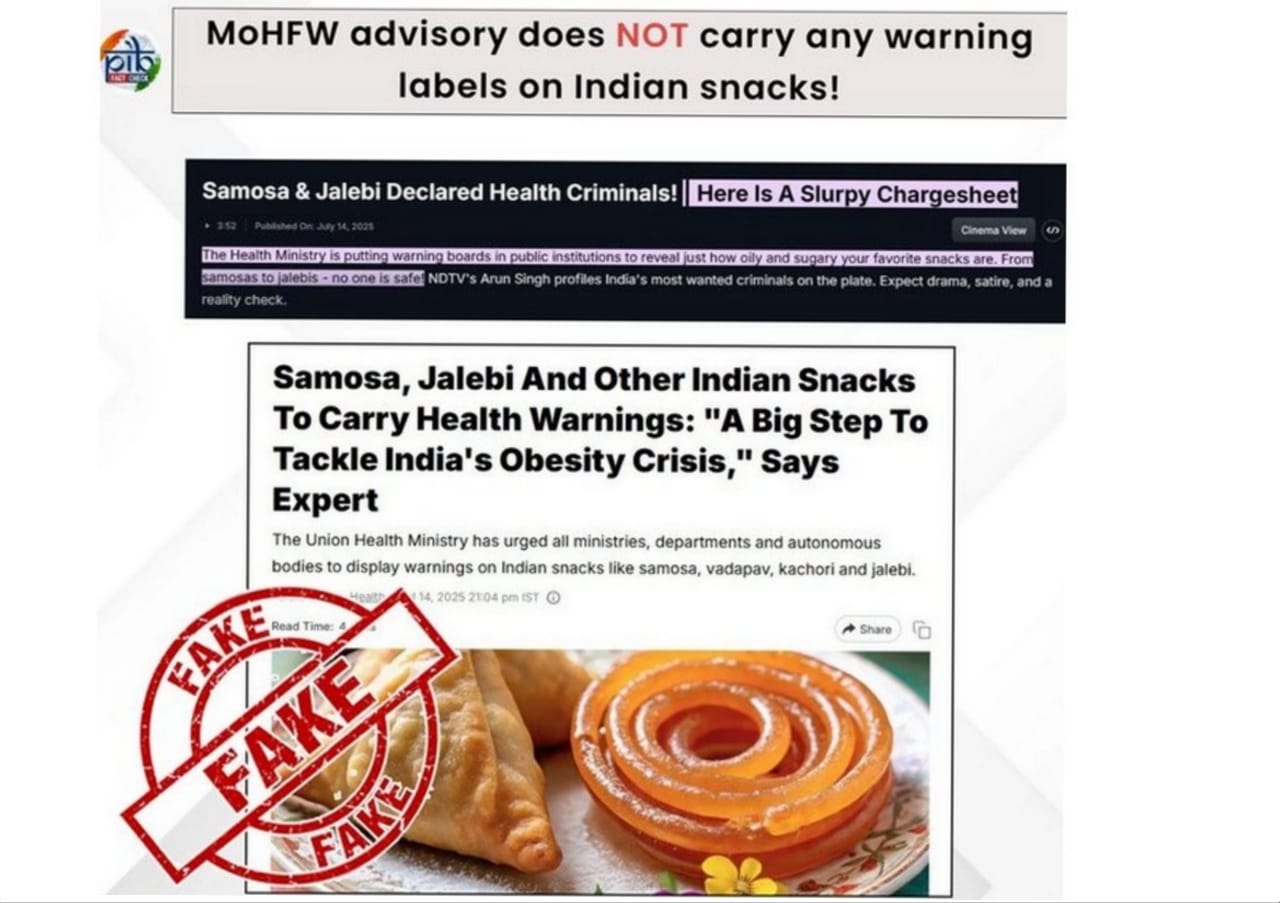
Health Warning Labels on Indian Snacks: A Wake-Up Call for India's Eating Habits
The Health Ministry of India has sparked off controversy across the country with a move to place warning of the harm of smoking cigarettes, in the form of health warnings, on popular salty savories samosas and jalebis sold in cafeterias and inside government institutions. This week, the move is expected to fight the upsurge of lifestyle diseases that have posed a rising trend among Indians.
The scales are mind-blowing when you dissect what we are putting in our bodies. There are 250-300 calories in a single samosa, and 1 piece of jalebi provides an additional 150-200 calories. Combined, they may add up to a meal which has little nutritive value but a high amount of calories. Pizza lovers aren't off the hook either; just two slices deliver 500-600 calories, primarily from refined flour, cheese, and processed meat.
"These snacks have a high glycemic load, which means they spike your blood sugar quickly," explains Bhakti Samant, Chief Dietitian at Kokilaben Dhirubhai Ambani Hospital, Mumbai. The problem isn't just the calories – it's the complete lack of essential nutrients like protein, fibre, and vitamins.
While the debate often centres on whether Indian street food or Western fast food is worse, nutrition experts suggest the real issue lies elsewhere. The cooking methods matter significantly. Street vendors frequently reuse oil for deep frying, creating harmful chemicals like acrylamide and trans fats. A medium portion of aloo bhajiya can contain 400-500 calories, mostly from oil.
Fast food isn't any better. Burgers with fries easily cross 700 calories, while doughnuts are loaded with sugar and refined flour, and pack 300-400 calories per piece. These foods are designed to make you crave more due to their high fat and salt content.
The Health Ministry's initiative comes at a crucial time. India is witnessing an alarming rise in obesity, diabetes, and heart disease, particularly among urban populations. The comfort food culture – celebrating with pizza, stress-eating with jalebis, or the typical Sunday breakfast of pakoras and samosas has become deeply ingrained in our lifestyle.
"There's no single bad snack," notes Samant. "It's about how often you eat them, how they're cooked, and what your overall lifestyle looks like." The key isn't complete elimination but understanding the impact of regular consumption.
The proposed health warnings aren't meant to demonise beloved foods but to create awareness. Just as cigarette warnings helped reduce smoking rates, food warnings could help people make informed choices about their diet.
Nutrition experts suggest practical alternatives: air-fried pakoras, whole-wheat pizzas, or sweets with reduced sugar content. "It's not about giving up your favourite foods; it's about how you prepare and eat them," Samant emphasises.
The Ministry's proposal represents a significant shift in India's approach to public health. While the debate continues, one thing is clear: awareness is the first step toward healthier eating habits. Whether these warnings will change behaviour remains to be seen, but they've certainly started a conversation that India desperately needs to have.